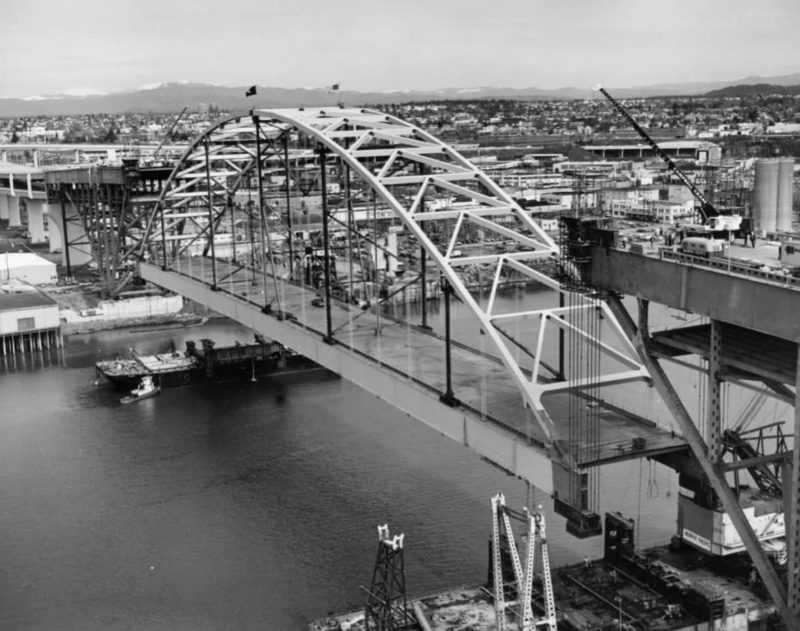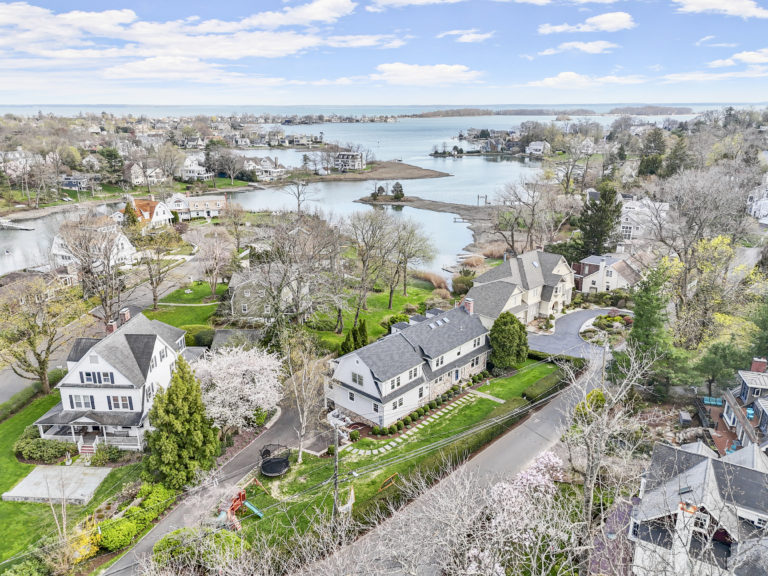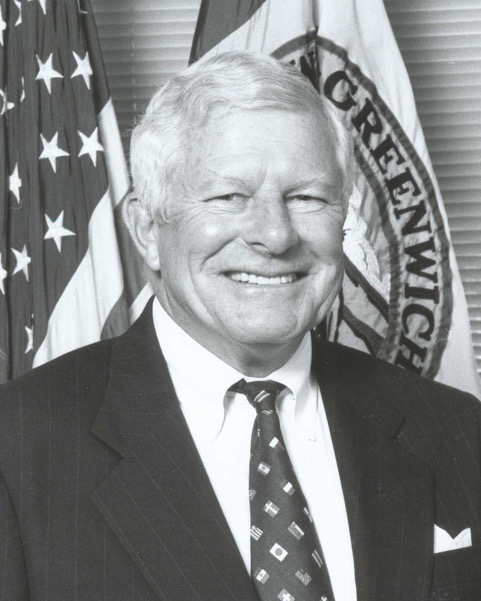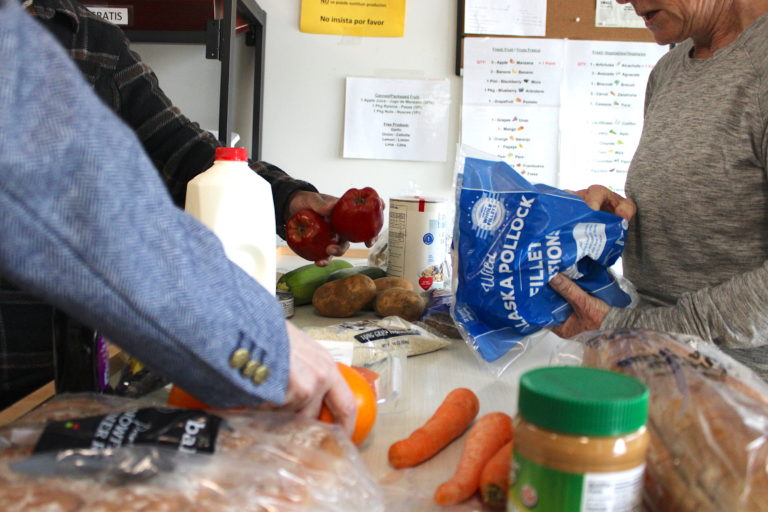
By Jim Dean
At the March 13th meeting of the RMA Bob Rimmer introduced the day’s speaker, Mike Abraham. Mike is the former chief structural engineer for WSP, USA Inc., formerly Parsons Brinckerhoff, an American multinational engineering and design firm. He described his experience in the design and construction of several major bridges including Fremont Bridge, Portland, Oregon; the Coleman Bridge, Virginia; Ford Island Bridge, Hawaii; Lions Gate Bridge, British Columbia, Canada; Cooper River Bridge, South Carolina; and Kosciuszko Bridge in New York.
The Fremont Bridge in Portland has a center span where the rib of the arch is above the deck, and is 902 feet (275 m) long. It was fabricated in California, then assembled in Oregon. After assembly it was floated on a barge for a 1.7-mile trip to the construction site. On March 16, 1973, the 6,000 short tons steel arch span was lifted 170 ft using thirty-two hydraulic jacks. At the time, it was listed in the “Guinness Book of World Records” as the heaviest lift ever completed. The Cooper River bridge was the longest cable bridge at the time it was built with a main span of 1,546 feet. Today it is the third longest among cable-stayed bridges in the Western Hemisphere. The Kosciuszko Bridge, originally built in 1938, is one of the most central pieces of New York City infrastructure. It is the hyphen in the Brooklyn-Queens expressway that connects two boroughs over Newtown Creek, a 3.5-mile creek which empties into the East River. A new Kosciuszko bridge had two phases. The eastbound bridge opened in 2016 and the westbound in 2019.
Mike also spoke about leading failure investigations when a bridge collapses, such as the Mianus River bridge which fell when connecting pins failed. He discussed the long history of cranes in the building of bridge spans, including the Fremont bridge.
The talk included an informative question & answer period.
The talk can be viewed by going to the RMA website at https://greenwichrma.org, and clicking on “Speakers.”
The RMA’s upcoming presentation, “Collecting Shakespeare’s First Folio in America,” by David Richards, is scheduled for 11 AM on Wednesday, March 27, 2024. If we make an analogy between rare book collecting in this country and American whaling in the 19th century, then there are two white whales in bibliomania, not one. The first is the Gutenberg Bible, printed in Mainz, Germany, between 1454 and 1456. Between 150 and 180 are thought to have been produced, and there are just 48 surviving copies. The other white whale is Shakespeare’s First Folio, published in 1623, which one bibliophile has in a different metaphor called the “Stradivarii of books.” Of 750 copies printed, 233 are recorded as extant.
Fifty-five percent of all copies are in four places: Washington, D.C., the London area (including Eton and Windsor), Tokyo, and New York City; today, 90% are owned by institutions. In this talk David Richards traces the history and importance of this treasure trove, how so many copies made their way from England to the USA, and the colorful (and rich) collectors who made this happen.
David Alan Richards is a member of RMA and has spoken to the Association on previous occasions, including about the donation of the High Line railroad viaduct for a New York City park, and on the British author Rudyard Kipling. He holds history degrees from Yale College and the University of Cambridge, where he was a Keasbey Scholar, and then attended Yale Law School. He is the recently retired chair of the Yale Library Associates, the alumni support group for the university’s Beinecke Rare Book & Manuscript Library, and is the author of seven books.
To stream the presentation by David Richards at 11 AM on Wednesday, March 27, click on https://bit.ly/30IBj21. This presentation will also be available on local public access TV channels, Verizon FIOS channel 24 and Optimum (Cablevision) channel 79.
Note: The views expressed in these presentations are those of the speakers. They are not intended to represent the views of the RMA or its members.
RMA speaker presentations are presented as a community service at no cost to in-person or Zoom attendees, regardless of gender. Any member of the public who would like to receive a weekly email announcement of future speakers should send a request to members@greenwichrma.org. The RMA urges all eligible individuals to consider becoming a member of our great organization, and thereby enjoy all the available fellowship, volunteer, and community service opportunities which the RMA offers to its members. For further information, go to https://greenwichrma.org/, or contact members@greenwichrma.org.




